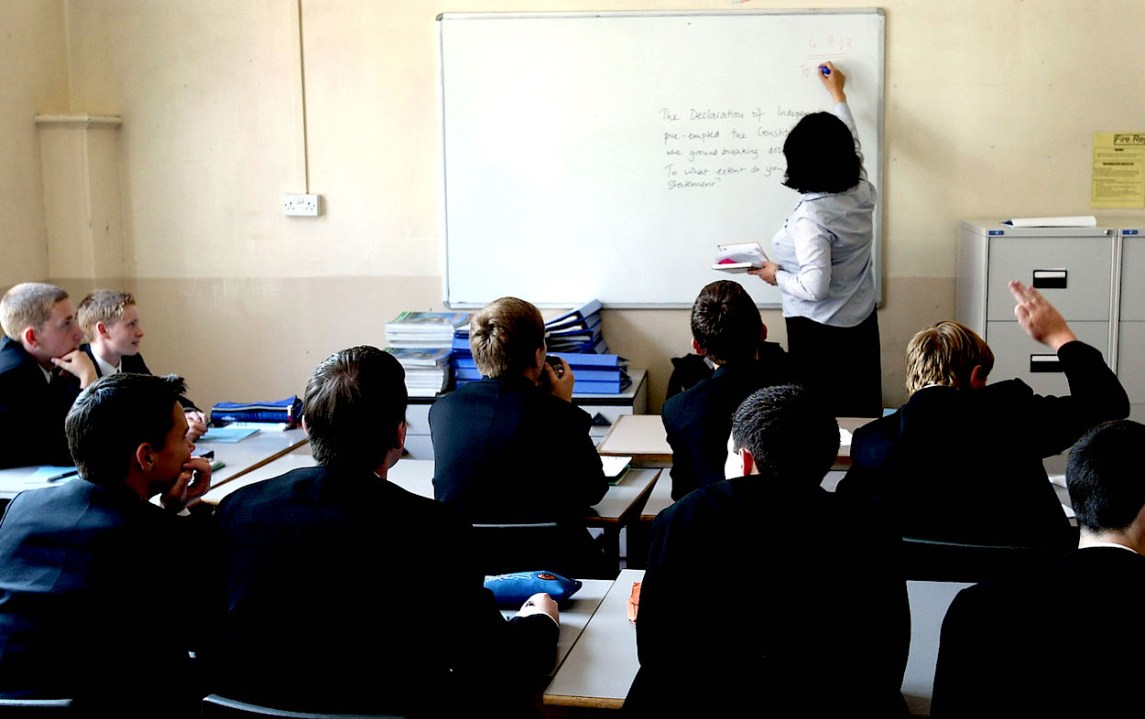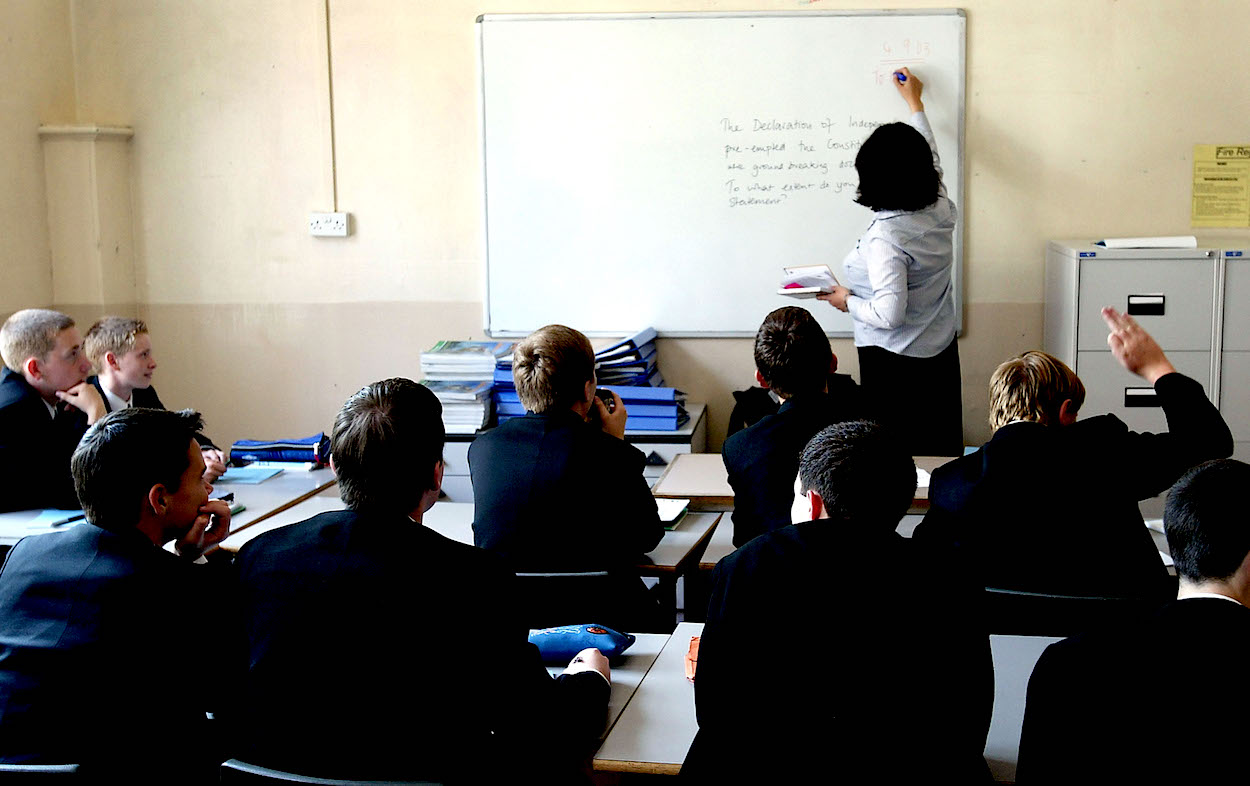It is ‘insane’, Reform’s Doge chief Richard Tice said this week, that children are wearing ear-defenders in classrooms, supposedly as a ‘calming activity’ to reduce anxiety and stress. Such practices, he said, show UK’s ‘special educational needs and disabilities’ system – known as Send – is not fit for purpose. The number of children receiving support for Send has increased from 1.3 million in 2019 to 1.7 million today, and by 2029, Send-related debts in UK councils are expected to reach £17.8 billion. These costs may bankrupt some local authorities.
Tice is of the view that the Send system is being hijacked by some parents and exploited by a well-paid army of ‘occupational therapists’, child psychiatrists and solicitors hired by mums and dads to get them out of paying VAT on their child’s independent school fees. (In some instances, the fees of Send pupils can be exempt from sales tax.)
Bizarrely, though, not everyone even agrees that this crisis exists. Labour seems to believe authorities should spend more – probably billions more – on Send. Helen Hayes, chair of the Education Committee, said in a recent cross-party report that a ‘cultural shift’ across the sector is needed. She wants more money spent training and recruiting Send staff to make mainstream schools more ‘inclusive’.
The risk, however, goes further than the costs. Many children with real learning needs will be marginalised as ‘special needs’ become mainstream. Activists such as actress Anna Maxwell Martin have called for a reform of Sat tests, because they believe that testing young children can ‘harm’ them and damage their self-esteem. This is a dangerous form of educational relativism. What is actually harming children today is an obsession with labelling. It may be comforting for parents to be told their child suffers from a condition – no one wants to blame their own parenting or, God forbid, teachers – but it is not always helpful.
The Send industry is becoming much like the HR industry that is taking over adults’ lives. Private school fees have not just risen in the last decade due to the arms race to build new sports facilities and science blocks, but because schools have had to adapt to the new Send culture required by Ofsted. The new inspectorate criteria, introduced in September, will ‘increase our focus and scrutiny on how providers are meeting the needs of children and young people with vulnerabilities such as socio-economic disadvantage and special educational needs and/or disabilities (Send).’ This means new departments and specialist staff.
Tice is not alone in voicing concerns over the rocketing number of medical diagnoses of children. At a separate Send-related event hosted by Policy Exchange this week, Baroness Spielman, a former chief inspector of Ofsted, also expressed scepticism about the use of ‘labels’ in the Send industry. She said the word dyslexia means no more than ‘bad at reading’, and that dyscalculia is just a ‘fancy word’ for something that is common. No doubt her saying this will bring howls of outrage from the vested interests who have profited from the surge in diagnoses.
We are witnessing a diagnosis creep
But Baroness Spielman is right. It will come as little surprise that the commercial roots of the Send industry come from American campuses. There, academic papers on behavioural health presented an opportunity for Big Pharma to create highly profitable medical prescription drugs – Ritalin, Prozac and the like – to treat soi-disant illnesses and create new labels that rarely existed before the 1970s.
We are witnessing a diagnosis creep. Take autism, for example, the ‘need’ now most cited in child education and health care plans. The diagnosis first became widely known in 1943 through the work of American psychiatrist Leo Kanner. By 1970, British psychiatrist Lorna Wing revolutionised the concept by inventing the term ‘autism spectrum’, covering a ‘wide range of conditions with varying symptoms and levels of severity’. In other words, whatever symptoms a ‘qualified’ psychiatrist wanted. Today, there are estimated to be between around 700,000 and 1 million people in the UK afflicted with autistic spectrum disorder. Bipolar UK, the mental health charity, says 1.3 million people in the UK have the mood swing disorder that used to be known as ‘manic depression’.
I have some experience of this Alice in Wonderland world of ‘occupational therapists’. The daughter of a family member was subjected recently to various costly assessments resulting in contradictory diagnoses, which were all inaccurate. It turned out that there was nothing actually wrong with the artistically talented child – who wrote her own school plays – other than her having an over-creative imagination. It wasn’t being diagnosed with a mental health label that made the child not need Send facilities, but rather the routine of a brilliant school, the experience of friendship, learning to be independent, the self-confidence of reading at Sunday Mass and being an unlikely but effective hockey team goalie.








Comments